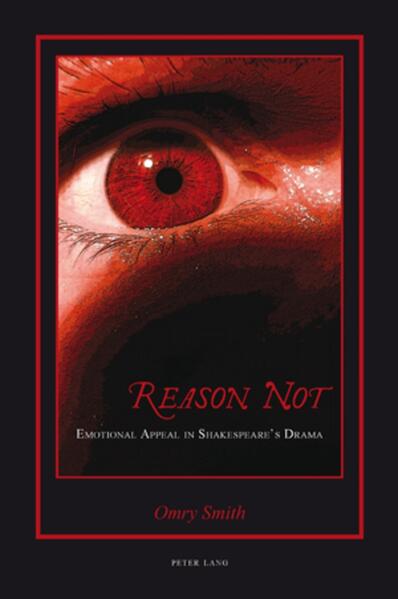This theoretical study guides the reader through some of Shakespeare's most emotionally turbulent dramatic worlds, offering a close examination of the fascinating emotional rhetoric employed by several key characters. These characters manipulate others - and sometimes even themselves - using a device broadly known in the terminology of rhetoric as 'emotional appeal'. Although Shakespeare displays immense interest in the human passions and makes frequent use of the tools of classical rhetoric, this study presents the first systematic inquiry into the emotional component of rhetoric in his drama.
The book also offers the reader a broad perspective on Shakespearean drama by highlighting diverse characters who embody the human tendency to worship reason and rationalise reality. In contrast to those 'emotionally intelligent' characters who acknowledge the crucial power of emotion in life and their inability to neutralise it, other characters deny this reality. Ironically, it is precisely those who deny emotion and obsessively seek rationality that eventually fall victim to their own intense passion, in some cases in response to emotional appeals from others.
Inhaltsverzeichnis
Contents:
Henry V
: Machiavelli's
The Prince
,
Henry V
and the Rhetoric of Intimidation - Regulating the Degrees of Anger and Fear as the Key to Victory - The Play's Emotional Appeals and Their Questionable Effect on the Plot -
Julius Caesar
: The Anger Hidden Within Brutus' Heart - Reason and Passion in the Orchard Soliloquy and in Brutus' Speech to the Populace - 'The Cause is in the Will': The Rationalisation of Emotion in the Play - Brutus Inflames Italy through a Series of Unintentional Emotional Appeals -
Othello
: Othello's Desire for Reason - Rousing Othello's Passions by Exploiting His Desire for Reason - The Figure of Reasoning as an Effective Means of Rousing Would-Be Men of Reason - The Figure of Reasoning and Othello's Active Role in His Own Downfall -
Coriolanus
: The Obsession with 'Name' in
Coriolanus
- The Power of
Ethos
in the Rhetorical Processes of the Play - The Emotional Appeals That Defeat Coriolanus and Their Foundations in
Ethos
-
Ethos
, Shame, and Coriolanus' Surrender to His Mother's Persuasion - Shakespeare's Emotional Appeals in Light of Modern Theories of the Emotions.
Jetzt reinlesen:
Inhaltsverzeichnis(pdf)